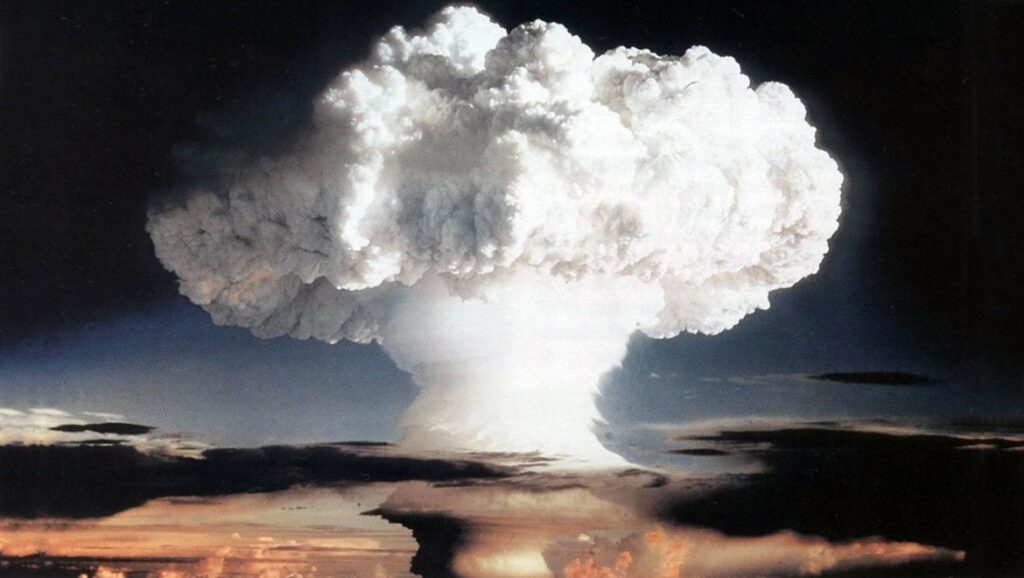Rising geopolitical tensions are driving some governments to spend billions on nuclear weapons, which is resulting in humanity findings itself on the brink of nuclear annihilation, warned the UN Secretary-General Antonio Guterres on Monday.
Around 13,000 nuclear weapons are currently being held in arsenals around the world, as governments are increasingly relying on these arms in a false bid for peace and security, Guterres said in New York at the launch of the latest round of reviews of an international treaty to prevent further proliferation of nuclear weapons.
"Distrust has replaced dialogue and disunity has replaced disarmament," he said during his speech, a situation which he said means humanity is “just one misunderstanding, one miscalculation away from nuclear annihilation.”
He stressed the importance of the meeting in New York, as it is taking place at a time of nuclear danger which has not been seen since the height of the Cold War, during which the United States and the Soviet Union directly threatened each other with nuclear weapons for decades.
The risk of relying on these "doomsday weapons" is more real than ever. He referred to incidents with nuclear undertones festering in the Middle East, the Korean Peninsula and the Russian-Ukrainian war — implying that geopolitical tensions are reaching new highs as guardrails to prevent escalation are weakening.
Re-affirm norm against use of weapons
In light of these crises, Guterres stressed the importance of the conference, during which he will also visit Hiroshima on the anniversary of the first nuclear bombardment in human history when the United States became the first country in the world to use a nuclear weapon in the war against Japan.
He underlined the importance of reinforcing and reaffirming the more than 50-year-old Treaty on the Non-Proliferation of Nuclear Weapons (NPT), to which 191 countries have adhered, which forms the basis for nuclear disarmament worldwide, and states that only the US, Russia, China, France and the UK can possess nuclear weapons.
The four other suspected nuclear powers globally, India, Pakistan, Israel and North Korea, either did not sign up or have withdrawn from the treaty.
This is why Guterres stressed the need for the new non-proliferation treaty, which he said provides an opportunity “to put humanity on a new path towards a world free of nuclear weapons.”
Related News
- Lahbib to visit UN nuclear weapons non-proliferation conference
- EU is not accepted by Russia as mediator to end the war in Ukraine
Finally, he said the world must "relentlessly work to eliminate nuclear weapons," which he said is the only guarantee they will never be used. "Reducing the risk of war is not enough," he added, stating that working towards this goal must start with "new commitments to shrink the numbers of all kinds of nuclear weapons so that they no longer hang by a thread over humanity."
Aside from these practical measures, he said that all avenues of dialogue and transparency must be strengthened, while the “simmering tensions” in the Middle East and Asia must be addressed.

